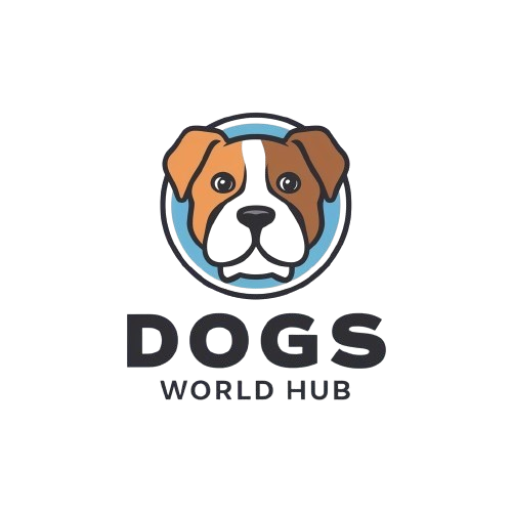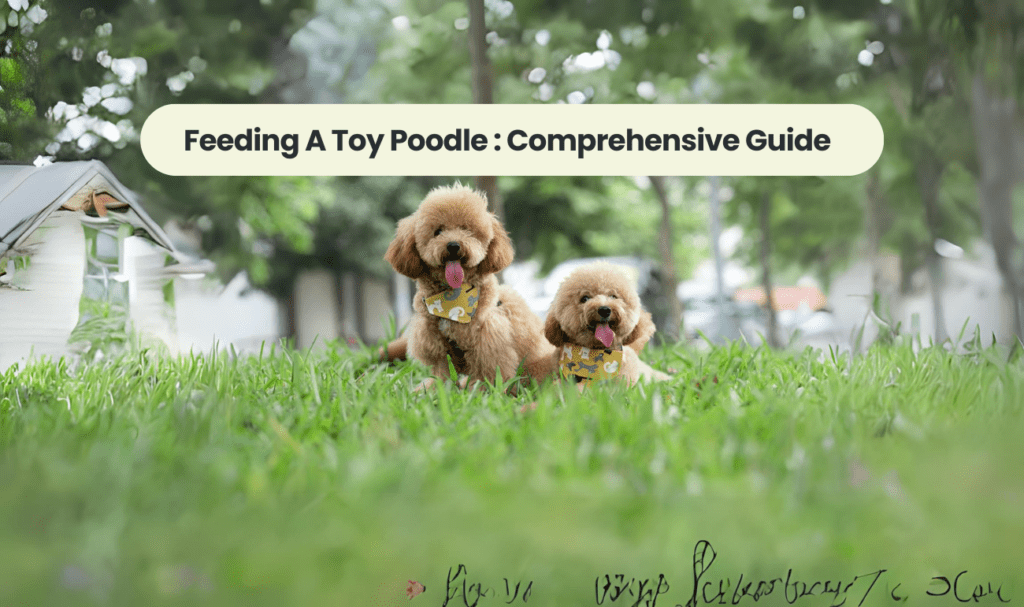One of the most important things you can do as a toy poodle owner is to make sure your pet gets a healthy, balanced diet. From the time they are puppies to the years they are adults, your toy poodle’s health and vigor depend on their proper nourishment. Part sizes, feeding frequency, suggested brands, and important nutritional considerations are just a few of the many topics covered in depth in this all-inclusive guide on feeding your toy poodle.
Decisions! Decisions!
Choosing the right food for your miniature poodle is an important decision that will affect their well-being. There are a lot of possibilities, so it’s important to choose a healthy diet that fits their demands. It is vital to choose a trustworthy brand that employs healthy ingredients whether you choose dry kibble, wet food, or a mix of the two.
How Much Do You Feed a Toy Poodle Puppy?
The best way to keep your miniature poodle puppy from gaining weight is to offer it the right amount of food. Toy poodle puppies should eat about half a cup of dry food twice day, according to the suggested serving size. If you want to keep your calorie consumption in check and avoid health problems, you must stick to this level. Ensuring your puppy gets the right amount of food without going overboard is as easy as adjusting the portion size to their activity level and development pace.
How Often Do You Feed a Toy Poodle Puppy?
The health and happiness of your toy poodle depends on its regular feeding regimen. Toy poodle pups need to eat twice a day to get all the nutrients they require, even though some dog owners only feed their pets once a day. If you want to keep your energy levels up all day and avoid acting out because you’re hungry, try eating half of the recommended portion at each meal. To avoid under- or overfeeding, it is vital to monitor your puppy’s weight and modify the feeding frequency.
How Many Times a Day Do You Feed a Toy Poodle Puppy?
A toy poodle puppy should ideally eat twice a day, however there may be times when that isn’t possible. For example, your puppy may have a higher metabolic rate or be very active. A smaller, more frequent meal schedule might work well for them. Obesity and its associated health concerns are the result of eating too much, so it’s important to find a happy medium and not overfeed. To prevent your toy poodle from becoming overweight, it is best to feed it no more than two meals a day.
What Brand of Foods Should They Eat?
If you care about your toy poodle’s health, you must ensure that they eat high-quality food. It is critical to choose a trustworthy brand that uses high-quality components and follows rigorous production standards, even though individual tastes and advice may differ. Wellness CORE Grain Free Natural, Merrick Lil Plates Grain Free Recipe, Halo Natural Holistic Dog Food, and Wellness Complete Health Natural Dry are a few prominent products that reliably provide toy poodles with high-quality nourishment.
Also Read Our Article : How long do teacup poodles live ?
If you’re looking for dog food for your toy poodle, it’s best to stay away from store brands and cheaper alternatives. These brands may use lower-quality ingredients that won’t be good for your dog. Choose foods that are devoid of any fillers or artificial additives and include a healthy mix of protein, veggies, and fruits. Your veterinarian is in the best position to advise you on what your toy poodle should eat based on his or her specific condition.
Dietary Considerations for Toy Poodles
While toy poodles are generally healthy and robust dogs, specific dietary considerations should be considered to ensure their optimal well-being. Here are some essential factors to keep in mind when feeding your toy poodle:
Size-appropriate kibble
Toy poodles have small mouths and may struggle with larger kibble sizes. Opt for small-sized kibble or moisten dry food with water or broth to make it easier for your toy poodle to chew and digest
Avoid toxic foods
Certain foods can be toxic or harmful to toy poodles. Chocolate, xylitol (a sugar substitute), grapes, macadamia nuts, raisins, and alcohol should be strictly avoided, as they can cause serious health issues or even be fatal to your furry friend.
Food allergies and sensitivities
Toy poodles can develop food allergies or sensitivities like any other dog breed. Common allergens include grains (such as wheat or corn), soy, dairy, and specific proteins. If you suspect your toy poodle has a food allergy or sensitivity, consult your veterinarian to determine the best action and explore hypoallergenic or limited-ingredient diets.
Adequate hydration
Providing fresh, clean water at all times is essential for your toy poodle’s overall health. Ensure that your furry companion always has access to water to stay hydrated, especially during hot weather or after physical activity.
Treats and snacks
While indulging your toy poodle with treats and snacks is tempting, choosing healthy options that complement their regular diet is essential. Opt for treats specially formulated for toy poodles, low in calories, and made with quality ingredients. Additionally, avoid excessive treat-giving, as it can contribute to weight gain and disrupt the balance of their regular meals.
Monitoring Your Toy Poodle’s Diet
There is no “magic bullet” when it comes to feeding a toy poodle. It is crucial to keep an eye on their weight, food, and general health to make sure they are doing well. Check their vitals by feeling around the waist and ribs on a regular basis. From above, your toy poodle should have a distinct waistline, and its ribs should not be too fat for you to handle. Discuss dietary changes with your vet if you see a marked increase or decrease in your pet’s weight.
Maintain a close check on their weight, but also on their hunger, digestion, coat quality, energy, and general behavior. These signs may point to more serious health problems or nutritional imbalances that necessitate a change in their feeding schedule or meal. For help with all of these things and to make sure your toy poodle gets the finest care possible, your vet is a great resource.
FAQ’s
How much should a toy poodle eat daily?
The amount of food a toy poodle should eat daily depends on factors like age, size, activity level, and metabolism. As a general guideline, a toy poodle typically requires around 1/4 to 1/2 cup of high-quality dog food per day, divided into two meals.
What food is best for Toy Poodles?
The best food for toy poodles is a high-quality, balanced diet specifically formulated for small breeds. Look for dog foods that list real meat as the first ingredient and avoid those with artificial additives, fillers, and by-products. Additionally, consider options tailored to small breeds to meet their unique nutritional needs.
How do you feed a baby toy poodle?
When feeding a baby toy poodle, it’s essential to provide them with a diet that supports their growth and development. Opt for a high-quality puppy food specially formulated for small breeds. Follow the feeding guidelines provided on the food packaging, and divide their daily portion into several small meals throughout the day to prevent overfeeding and aid digestion.
What food can Toy Poodles not eat?
Toy poodles, like all dogs, should avoid certain foods that can be harmful to their health. These include chocolate, grapes, raisins, onions, garlic, avocados, macadamia nuts, caffeine, alcohol, and foods high in fat, salt, or spices. Additionally, be cautious with bones, as they can splinter and cause injury or choking hazards. Always consult with your veterinarian about any specific dietary concerns for your toy poodle.
Conclusion
The health and happiness of your toy poodle depend on your feeding them a healthy, balanced diet. Your toy poodle can get the nutrition it needs if you buy high-quality food brands, feed it at the specified times, and pay attention to important nutritional factors. Be sure to keep an eye on their weight and general health. For more specialized advice, it’s best to see your veterinarian.

